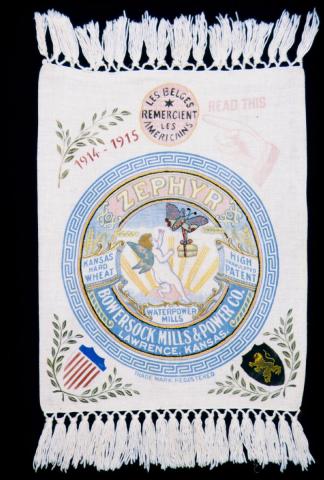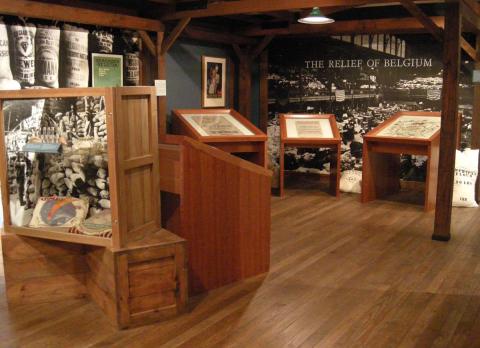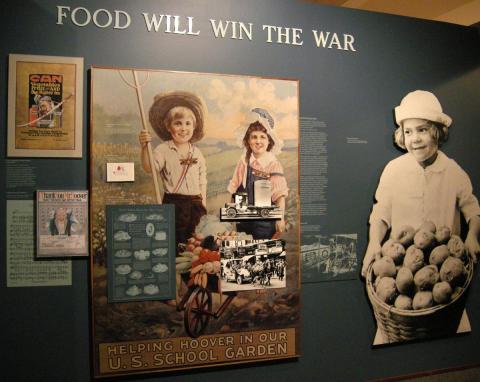On This Page
- Rendering Links ...
Years of Compassion 1914-1923
Public Service
Herbert Hoover was raised a Quaker, although as an adult he rarely attended Meetings. He held fast the Quaker tenets: the power of the individual, the importance of freedom, and the value of charity. Hoover’s beliefs were also shaped by his training as a geologist—that scientific expertise properly employed leads to human progress. He strongly believed in public service.
In 1914, Hoover was living in London when World War I broke out in Europe. Yearning for an opportunity for public service, he immediately organized assistance for American travelers who were fleeing the war. A few weeks later he established the Commission for Relief in Belgium to provide food for Belgian civilians trapped in the war zone.
Commission for Relief in Belgium


When World War I began in August 1914, Germany invaded the neutral country of Belgium, hoping to quickly overrun France. By October 1914, food supplies in Belgium were nearly exhausted. The American ambassadors to Belgium and Great Britain persuaded the British to allow the importation of food under American supervision on the condition that none of it would go to Germany or the German army in Belgium. They promised the Germans that the distribution would not be used to aid the Allies or to spy on the German army. Herbert Hoover was asked to lead the project, which came to be called the Commission for Relief in Belgium, (CRB).
In order to distribute food equitably and to prevent the growth of the black market, the CRB collected and rationed all locally grown food along with the imported supplies. By mid-November, food supplies reached all parts of occupied Belgium, and there was no catastrophic famine from that point forward, though rations for all were strictly limited for the duration. Herbert Hoover gained worldwide fame as the “Great Humanitarian” for creating an unprecedented organization that fed up to 10-million civilians for five years in the midst of a war zone.
U.S. Food Administration

In 1917 the United States entered the war, and Hoover, now a famous humanitarian, returned stateside to be appointed by President Woodrow Wilson as the head of the new U.S. Food Administration. Under Hoover’s leadership, the Food Administration dramatically increased farm production by influencing market prices with massive government purchasing, and appealed to the general public to voluntarily reduce consumption without resorting to rationing.
Hoover became a household name—“to Hooverize” meant to economize on food. Americans began observing “Meatless Mondays” and “Wheatless Wednesdays” and planting War Gardens. Within a year, the United States had dramatically increased food shipments to Europe. After the Armistice was signed in November 1918, President Wilson appointed Hoover to head the American Relief Administration. Hoover channeled 34-million tons of American food, clothing and supplies to war-torn Europe.
